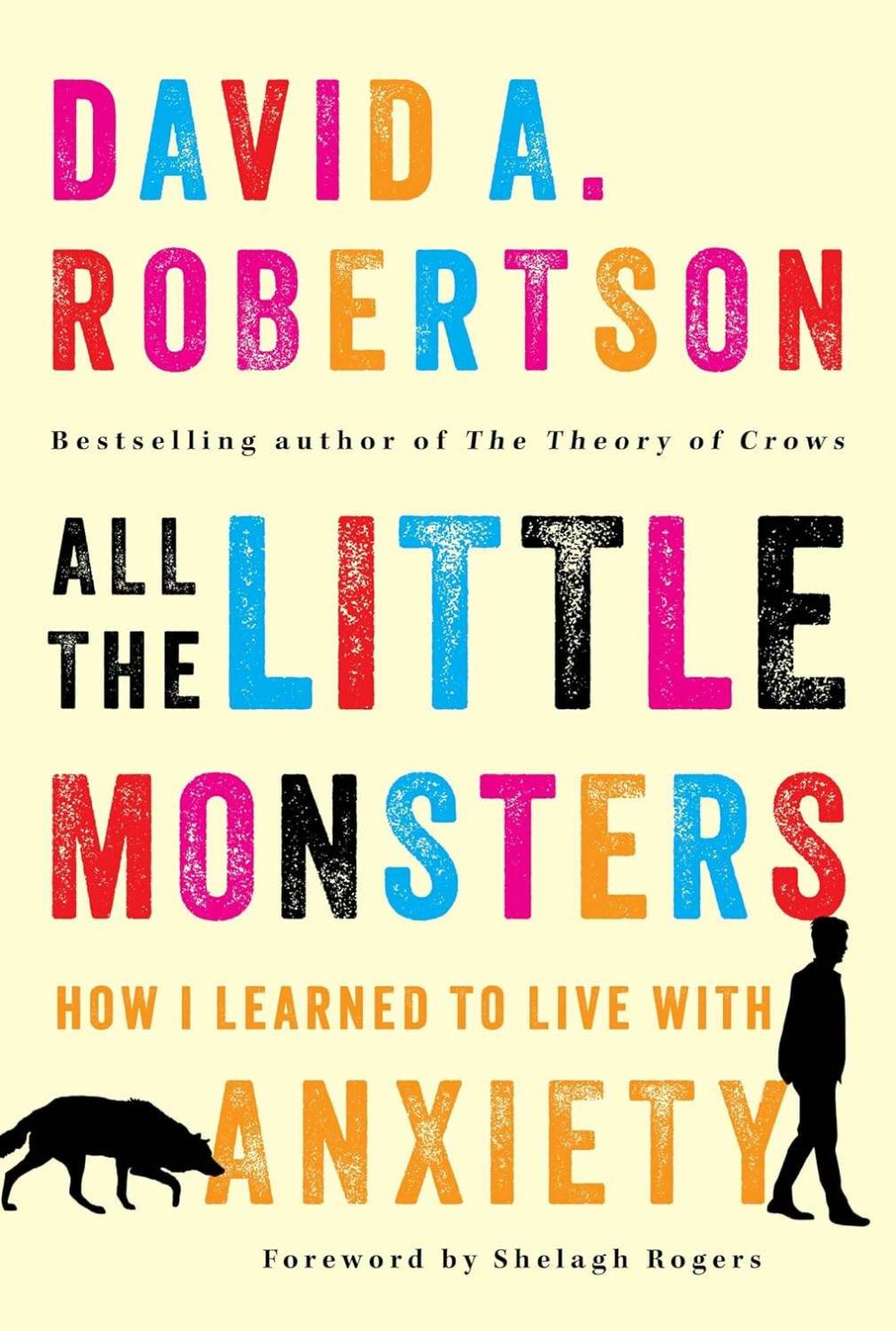Keeping the monsters at bay
Robertson details struggles with anxiety in the hopes of helping others to heal
Advertisement
Read this article for free:
or
Already have an account? Log in here »
To continue reading, please subscribe:
Monthly Digital Subscription
$0 for the first 4 weeks*
- Enjoy unlimited reading on winnipegfreepress.com
- Read the E-Edition, our digital replica newspaper
- Access News Break, our award-winning app
- Play interactive puzzles
*No charge for 4 weeks then price increases to the regular rate of $19.95 plus GST every four weeks. Offer available to new and qualified returning subscribers only. Cancel any time.
Monthly Digital Subscription
$4.99/week*
- Enjoy unlimited reading on winnipegfreepress.com
- Read the E-Edition, our digital replica newspaper
- Access News Break, our award-winning app
- Play interactive puzzles
*Billed as $19.95 plus GST every four weeks. Cancel any time.
To continue reading, please subscribe:
Add Free Press access to your Brandon Sun subscription for only an additional
$1 for the first 4 weeks*
*Your next subscription payment will increase by $1.00 and you will be charged $16.99 plus GST for four weeks. After four weeks, your payment will increase to $23.99 plus GST every four weeks.
Read unlimited articles for free today:
or
Already have an account? Log in here »
Hey there, time traveller!
This article was published 08/02/2025 (336 days ago), so information in it may no longer be current.
In his latest memoir, David A. Robertson embraces healing and strives to increase representation for those struggling with mental health.
Representation is a common thread in the body of the Swampy Cree writer’s work, which includes upwards of 30 books. He has won two Governor General’s Literary awards, and his picture books, middle-grade novels (particularly the Misewa Saga series) and graphic novels are staples in the education system. In All the Little Monsters, Robertson takes advocacy to a new level.
Mike Deal / Free Press In his new memoir, David A. Robertson uses his voice to lift others grappling with mental-health issues.
There are distinct differences between this memoir and his last, 2020’s Black Water, which tells the story of returning to the family trapline with his father and reconnecting with their culture and past, written before his father’s death in late 2019. That memoir is rooted in scene as Robertson brings the reader into his world. All the Little Monsters is different in that it is primarily rooted in musings and interiority. In this memoir, the reader is brought deeply into the author’s mind — one that has long grappled with anxiety.
Robertson opens All the Little Monsters by detailing a 2019 episode where he had a panic attack before a literary event in Calgary. It wasn’t the first, and it wouldn’t be the last — throughout his writerly career and adult life he has had to figure out how to quiet the monsters of the book’s title. The reader walks alongside him throughout the narrative as he develops strategies to manage his symptoms and grapple with his fears, especially as they pertain to his heart condition and physical exercise.
Robertson shares his journey with the reader in direct address, in the same way he would over an extended cup of coffee. This stylistic choice adds a feeling of authenticity, and his sharing of physical and mental symptoms strips away all ego that may be associated with his very public success as a writer. In presenting his weakness, Robertson has revealed his greatest strength — his talent for using his voice to lift others. At all times, the reader is aware of his target audience, those who also struggle with mental health. This is a book written with the intent to heighten social consciousness and help people.
Robertson is aware of power imbalances, and he’s careful to remind the reader that his analogies, musings and takeaways are only how he makes sense of his own experience. He sticks to only telling his own story and doesn’t expose his family to the public eye, though he shares the impact of his mental health on their family dynamics.
Still, Robertson’s wife Jill is a strong presence throughout All the Little Monsters, and his gratitude is woven into virtually every chapter. And while choosing to only show her unwavering support could be seen as a one-dimensional representation, his willingness to sacrifice the complexity of Jill-on-the-page to preserve boundaries with Jill-the-person only speaks to Robertson’s integrity. His choice to share his struggle and not hers shows a deep respect for boundaries that increases the reader’s trust and serves the greater theme of the memoir.
For those who have read Robertson’s other books, All the Little Monsters creates valuable context, offering insights into what he was going through when he wrote them. There are many intertextual references that tie everything together, offering a deeper insight into the power of story and community, identity, being present and what it means to be accessible and kind to people who are struggling. This work could begin a journey of healing or save a life. Robertson himself acknowledges this hope in his last lines.
From beginning to end, All the Little Monsters is a remarkable example of leadership in action as Robertson steers the narrative around mental health towards tolerance, acceptance and kindness.
Carrie Hatland is a teacher and is currently enrolled in the Memoir Writing Certificate program through Stanford University Continuing Education.



